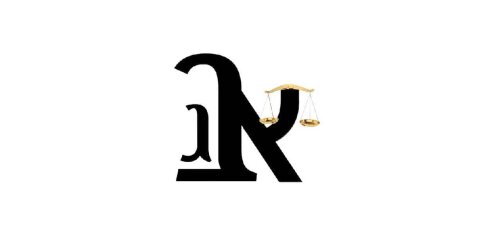Best Hiring & Firing Lawyers in Jerusalem
Share your needs with us, get contacted by law firms.
Free. Takes 2 min.
List of the best lawyers in Jerusalem, Israel
About Hiring & Firing Law in Jerusalem, Israel
Jerusalem, like the rest of Israel, operates under a comprehensive legal framework that governs employment practices, including hiring and firing. These laws are designed to ensure fairness, prevent discrimination, and protect the rights of both employers and employees. Key statutes include the Employment (Equal Opportunities) Law, the Employment (Terms of Employment) Law, and the Protection of Workers (Termination) Law. Each of these plays a significant role in regulating the intricate processes of hiring and firing within the region.
Why You May Need a Lawyer
Legal assistance is often essential for navigating the complexities of hiring and firing laws in Jerusalem. Common situations where you might require legal help include:
- Wrongful Termination: If you believe you have been unfairly dismissed from your job.
- Discrimination Claims: Situations where discrimination may have occurred during the hiring process or employment.
- Contract Disputes: Issues related to the terms of an employment contract.
- Severance Pay: Disputes regarding the calculation or provision of severance payments.
- Workplace Harassment: Whether during hiring, employment, or termination.
- Employee Rights: Understanding your rights under Israeli employment law.
Local Laws Overview
Several key aspects of local laws in Jerusalem, Israel are particularly relevant to hiring and firing:
- Equal Opportunity Laws: Prohibit discrimination based on race, religion, gender, age, and other protected characteristics.
- Employment Contracts: Must be provided to employees, clearly outlining the terms and conditions of employment.
- Termination Procedures: Employers are generally required to give notice and follow specific procedures to lawfully terminate employment.
- Severance Pay: Employees may be entitled to severance pay depending on their length of service and the circumstances of their termination.
- Protected Categories: Certain groups such as pregnant women, individuals on reserve duty, and employees on sick leave have additional protections against termination.
Frequently Asked Questions
What are my rights if I am terminated without notice?
In Israel, employees are generally entitled to notice or payment in lieu of notice if terminated. The period of notice depends on the duration of employment.
Can I be fired for any reason?
While employment in Israel can be terminated for various reasons, it cannot be done discriminatorily or in violation of an employment contract. Certain reasons, such as those based on discrimination or retaliation, are illegal.
What should be included in an employment contract?
An employment contract should include the job title, duties, working hours, salary, benefits, duration of employment, and conditions for termination.
How can I claim wrongful termination?
If you believe you have been wrongfully terminated, you may file a complaint with the labor court. Legal advice is highly recommended to navigate this process.
What constitutes workplace discrimination during hiring?
Discriminating against a candidate based on race, religion, gender, age, disability, or other protected characteristics is illegal and constitutes workplace discrimination.
Am I entitled to severance pay?
If you have been employed for at least one year and are terminated under certain conditions, you may be entitled to severance pay. Consult with a lawyer to assess your specific situation.
What protections do pregnant women have against termination?
Pregnant women benefit from significant protections against dismissal. Terminating a pregnant employee often requires special approval from relevant authorities.
Can fixed-term contracts be terminated early?
Fixed-term contracts can generally only be terminated according to their specific terms or in cases of serious breach. Consult a lawyer for guidance.
What recourse do I have if my employer doesn’t follow termination procedures?
If your employer fails to comply with required termination procedures, you may be entitled to legal remedies, including compensation. Seek legal advice for a tailored solution.
How do I deal with workplace harassment?
Workplace harassment should be reported to your employer, and they are required to investigate and address the issue. Legal action can be taken if the matter is not resolved adequately.
Additional Resources
Here are some resources and organizations that can help:
- Ministry of Labor, Social Affairs, and Social Services: Provides information and assistance related to labor laws.
- Equal Employment Opportunities Commission (EEOC): Offers guidance on preventing and addressing workplace discrimination.
- Local Labor Courts: Handle disputes related to employment and termination.
- Professional Legal Associations: Such as the Israel Bar Association, which can refer you to specialists in employment law.
Next Steps
If you need legal assistance with hiring and firing issues in Jerusalem, follow these steps:
- Gather Documentation: Collect all relevant documents such as employment contracts, termination notices, and correspondence with your employer.
- Consult a Lawyer: Seek out a lawyer specializing in employment law to get expert advice and representation.
- File a Complaint: If necessary, file a complaint with the labor court or relevant government body.
- Stay Informed: Keep updated on your rights and any changes in employment laws that may affect your case.
Lawzana helps you find the best lawyers and law firms in Jerusalem through a curated and pre-screened list of qualified legal professionals. Our platform offers rankings and detailed profiles of attorneys and law firms, allowing you to compare based on practice areas, including Hiring & Firing, experience, and client feedback.
Each profile includes a description of the firm's areas of practice, client reviews, team members and partners, year of establishment, spoken languages, office locations, contact information, social media presence, and any published articles or resources. Most firms on our platform speak English and are experienced in both local and international legal matters.
Get a quote from top-rated law firms in Jerusalem, Israel — quickly, securely, and without unnecessary hassle.
Disclaimer:
The information provided on this page is for general informational purposes only and does not constitute legal advice. While we strive to ensure the accuracy and relevance of the content, legal information may change over time, and interpretations of the law can vary. You should always consult with a qualified legal professional for advice specific to your situation.
We disclaim all liability for actions taken or not taken based on the content of this page. If you believe any information is incorrect or outdated, please contact us, and we will review and update it where appropriate.

















